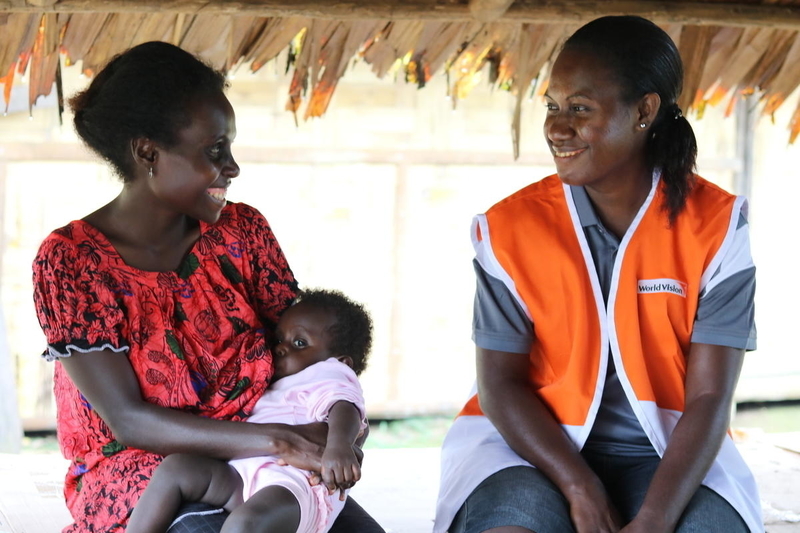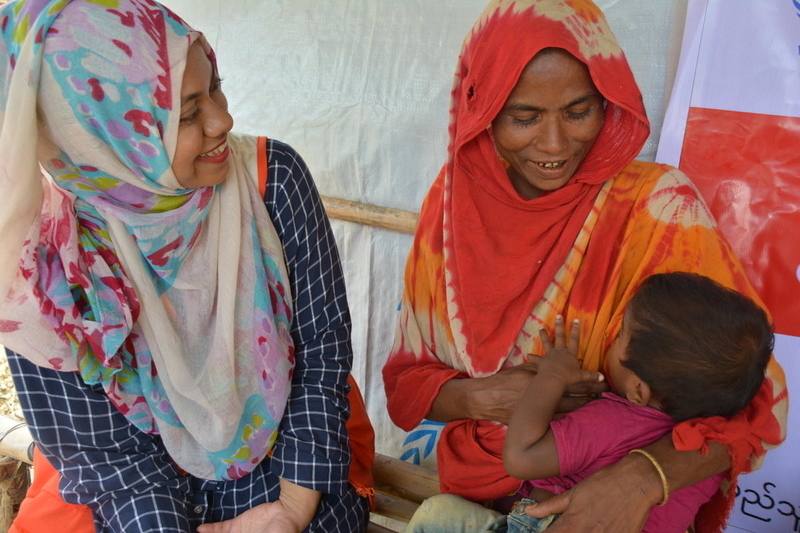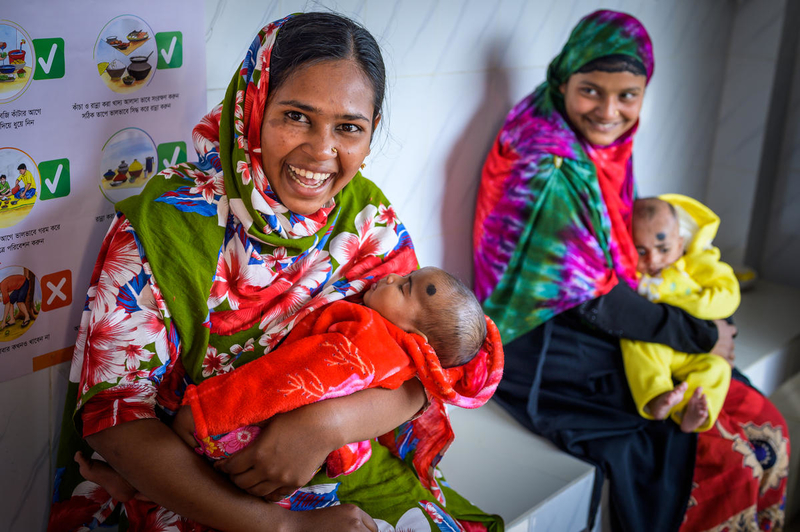Breastfeeding Is a Team Sport, and Frontline Health Workers are Key Players

A happy mother with her healthy child, thanks to World Vision nutrition classes in southwest Bangladesh, where nutrition facilitators run courtyard feeding sessions for local moms and babies. World Vision is a member of the Frontline Health Workers Coalition. © 2019 World Vision, Jon Warren
The lifesaving protection of breastfeeding is critical to children surviving and thriving around the world. Particularly in settings where malnutrition and poverty are widespread, breastfeeding guarantees a safe, nutritious, and accessible food source for infants and young children, as well as a protective shield against death and disease.
However, breastfeeding is no small task, and it requires immense support from families, communities, and societies. While it is a natural act, breastfeeding is also a learned behavior, and there are many barriers to exclusive breastfeeding, including cultural practices, misinformation, lack of proper counseling, or the need to return to work.
In fragile contexts or emergency settings, there are even greater barriers, which is why organizations like World Vision provide safe spaces for mothers and their children, such as breastfeeding corners, together with counseling on breastfeeding. Breastfeeding truly takes a team. It’s a practice that has the potential to save the lives of 823,000 children and 20,000 women every year.

Linsay Pokambut, World Vision water and sanitation officer, informs Gilda about simple sanitation and hygiene practices to keep baby Moreen healthy. © World Vision, Tanya Hisanan
The breastfeeding team players
In fact, breastfeeding is a big enough deal to deserve its own awareness campaign: World Breastfeeding Week, led by the World Alliance for Breastfeeding Action on August 1-7 of every year.
Imagine breastfeeding as a team sport with various members of society gathering around mothers to support them in reaching their personal breastfeeding goals. There might be fathers, grandparents, siblings, political leaders, and faith leaders in the lineup, but it’s hard to envision a winning team globally without frontline health workers.
Frontline health workers work hand-in-hand with mothers, on the front lines, to make sure they have the information and support they need to reach their personal breastfeeding goals. Frontline health workers are community health workers, nurses, midwives, doctors, pharmacists, surgeons, and more, providing health services directly to people in their communities.

Dr. Hazera Muyeena (left) advises Rahima Khatun, who is breastfeeding her one-year-old son, Ibrahim. A mother of nine children, Rahima says she knows about the importance of breastfeeding, but had not breastfed exclusively with her older children. “I gave my babies honey, water, and powdered milk when they were born,” says Rahima. “But I know not to do this now. I see the difference between my two youngest children, who I breastfed only and those I didn’t. The others were much smaller.” © World Vision, Karen Homer
How World Vision supports breastfeeding
World Vision has trained over 220,000 community health workers around the world to ensure access to health services in even the hardest to reach places. These frontline health workers are often the only possible touch point for families in communities that may not have access to a healthcare center or essential health services. By providing crucial care and information to their communities, they help to empower mothers, reduce child mortality, and break the cycle of poor health and poverty.
Access to a well-trained, well-equipped, and well-supported frontline health workforce, as well as policies and practices that enable mothers to breastfeed, are critical to reach global health goals and end preventable child and maternal deaths. Our mission for all children to reach their full potential simply cannot be achieved without greater support for breastfeeding alongside significantly strengthening the global frontline health workforce. Frontline health workers are critical members of the breastfeeding team.

Hena Begum holds her son Ibrahim Khan, 6 months. She came to the Chunkuri Community Clinic for nutrition classes and to have her baby’s health status checked. © 2019 World Vision, Jon Warren
How we can help
We can help by recognizing the contributions of the many different types of frontline health workers toward better health and stronger support for breastfeeding — from community health workers to midwives to doctors — and encouraging their input in policy-making. One incredible tool for this is the Breastfeeding Advocacy Toolkit from the Global Breastfeeding Collective, which World Vision is a member of alongside other members of the Frontline Health Workers Coalition. This toolkit includes resources and tools to empower frontline health workers as breastfeeding advocates working to improve policies and financing for the protection, promotion, and support of breastfeeding.
With greater support for breastfeeding and frontline health workers, we can increase prosperity, save the lives of many women and children, and create a winning global breastfeeding team.
For more information on World Breastfeeding Week, please visit www.worldbreastfeedingweek.org.
Learn more information on how World Vision protects, promotes, and supports breastfeeding.
This blog post was originally published on World Vision's blog.
